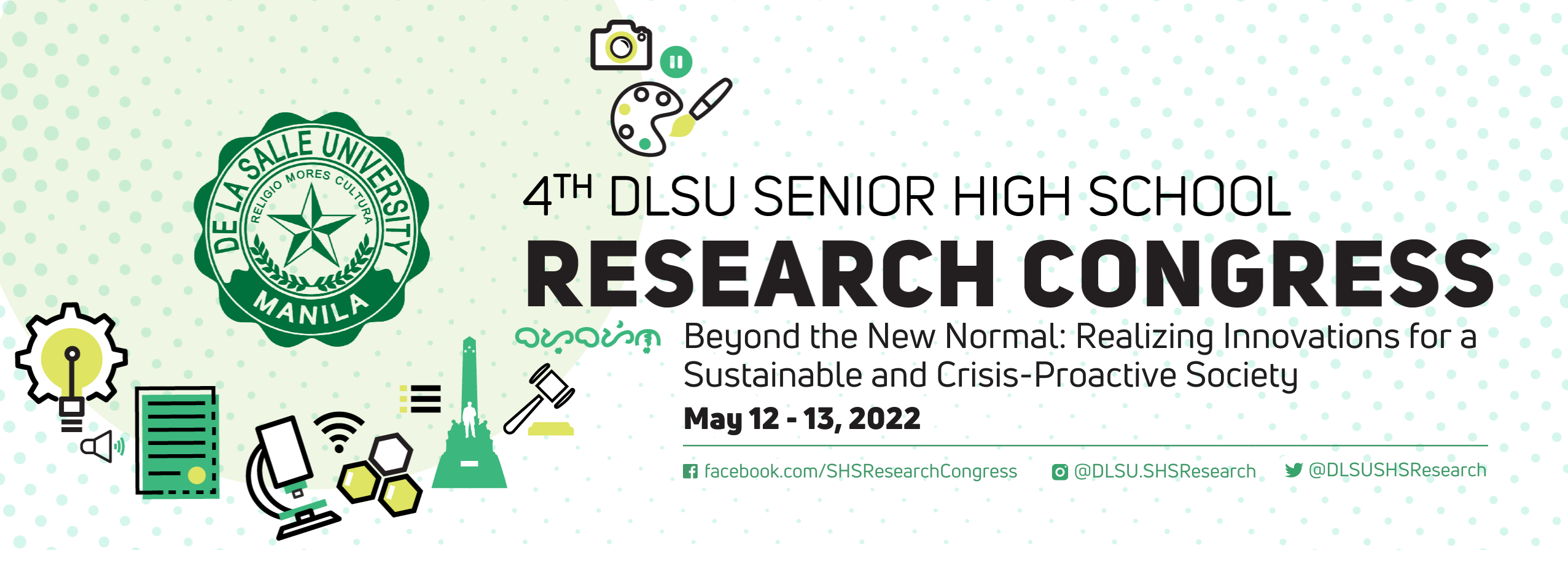Document Types
Arts and Design Research Presentation
Research Theme (for Paper Presentation and Poster Presentation submissions only)
Digital Arts (DA)
Research Advisor (Last Name, First Name, Middle Initial)
Ryan Edward Ballesteros
Start Date
12-5-2022 1:00 PM
End Date
13-5-2022 12:00 PM
Abstract/Executive Summary
Over the years, the Philippines prides itself on being one of the most gender-equal countries in the world. Despite this, female participation within the realm of politics remain below the critical mass of representation—often attributed to androcentric biases and the patriarchal structure of society. In this modern age, with the proliferation of feminist ideologies as well as the rise of publicly misogynistic sentiments, the general stance of the young Gen Zs towards women’s participation in politics remains a mystery, as many of them continue to become part of the eligible voter population of the country. This paper then aims to examine the origins, developments, and current status of androcentric biases against women’s participation in politics, particularly within the Gen Z demographic through conducting a quantitative survey questionnaire and critical discourse. An RPG game titled “Maria” was then conceptualized to reflect the findings and perspectives of the Gen Z youth examined in the research; the game aims to provide strong female representation in nation-building while tackling the hindrances of societal biases on the protagonist’s journey.
Keywords
Gen Z; voting; androcentrism; women; game concept
Included in
Maria: A Game Concept on the Perception of The Filipino Voting Youth towards Women in Politics
Jaime Hilario Virtual Auditorium 2
Over the years, the Philippines prides itself on being one of the most gender-equal countries in the world. Despite this, female participation within the realm of politics remain below the critical mass of representation—often attributed to androcentric biases and the patriarchal structure of society. In this modern age, with the proliferation of feminist ideologies as well as the rise of publicly misogynistic sentiments, the general stance of the young Gen Zs towards women’s participation in politics remains a mystery, as many of them continue to become part of the eligible voter population of the country. This paper then aims to examine the origins, developments, and current status of androcentric biases against women’s participation in politics, particularly within the Gen Z demographic through conducting a quantitative survey questionnaire and critical discourse. An RPG game titled “Maria” was then conceptualized to reflect the findings and perspectives of the Gen Z youth examined in the research; the game aims to provide strong female representation in nation-building while tackling the hindrances of societal biases on the protagonist’s journey.


